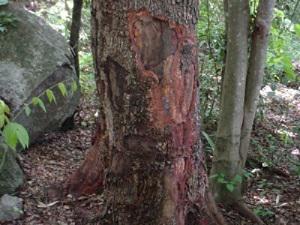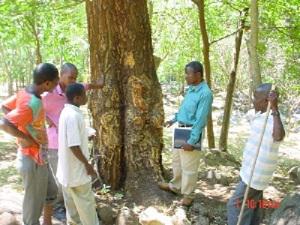Frank Gabriel Kasiya
Other projects
15 Dec 2009
Pragmatic and Long-Lasting Solution to Horrific Killing of Endangered and Traumatised Wildlife Species in Traditional Authorities Mponda
Nyika national park is the largest of Malawi’s national parks. The park covers an area of 3,134 km2, with another 70 km2 on the western edge of the Nyika National Park belonging to the Zambian side which borders the country to the west.

Unsustainable medicinal plant harvest which leads to massive plant deaths.
Nyika National Park is rich in flora and faunal biodiversity. There are about 1,105 described plant species in this national park. It is currently administered by the Department of National Parks and wildlife. However, many plant species from this park are being indiscriminately harvested for traditional medicine, fuelwood, timber and poles without due respect for conservation and/or regeneration. Many mammals are also illegally being killed by poachers from both Malawi and Zambia. As a result, many plant and animal species are under threat and many have become extinct.

A field visit to Nyika National Park by Mr. Nthenda and some traditional healers examining a threatened plant species.
The ethnobotanical survey that was carried out by the national Herbarium and Botanic Gardens of Malawi and Forestry Research Institute of Malawi on assessment of the conservation status of the plant biodiversity in Malawi for the IUCN Red Data (2004) indicates that the national park is under severe pressure. Many plant species are unsustainably harvested for traditional medicine believed to cure HIV/Aids and other related illnesses.
Bush fires and deforestation also adversely contribute to loss of plant species and suitable habitats for wild animals in Nyika National Park.
In order to address these problems, NHBG would like to fully involve key stakeholders (traditional healers, local communities, hunters and park wardens in the area in protection, propagation and conservation of all threatened socio-economic plant species to ensure that all deforested and degraded areas of the park are rehabilitated.
The specific objectives of this project are:
1. To educate local communities, traditional healers and hunters on the importance of nature conservation;
2. To carry out environmental education and awareness campaigns on conservation problems associated with over-utilisation of nature;
3. To integrate local communities and stakeholders in propagation and protection of threatened plant species of the national park;
4. To advocate and lobby local communities and stakeholders to form wildlife management committees to protect the flora and fauna of the park from further threat.